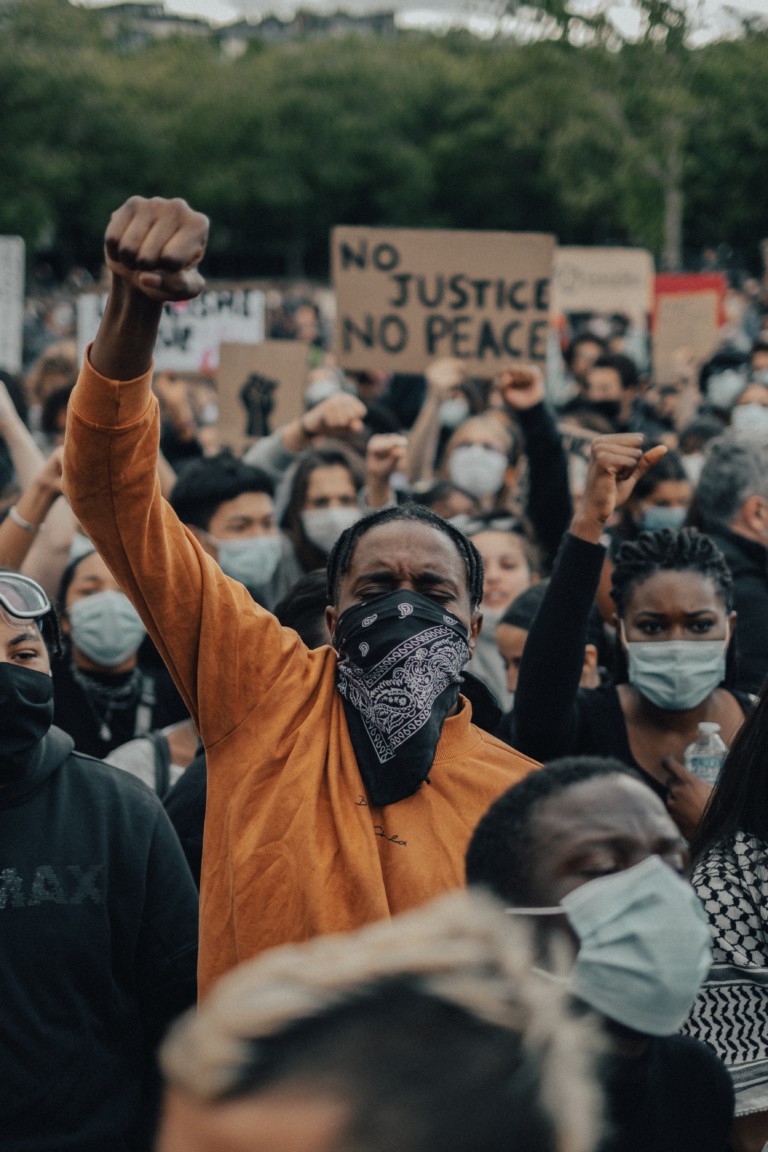
Our plan to follow up on our Black Lives Matter statement
‘Justice for all just ain’t specific enough.’ (John Legend, ‘Glory’)
As we promised in the statement published on our website from 9th-30th June 2020, we have reflected on our organisation, ourselves and our work. We re-commit ourselves to challenge and fight against all forms of structural and institutional racism and discrimination, and to work in and through our projects for the dignity, safety, liberty, and self-determination for people who experience discrimination, inequality and intersecting inequalities, particularly Black, Asian, Indigenous, Deaf and disabled people, women and girls, trans and Queer people. Here is our action plan.
- Acknowledge our weaknesses.
- We are an organisation with white leadership and a mainly white staff. Our UK-Brazil working privileges bilingual people: most English-speakers in Brazil are white, and most Brazilian nationals who move to the UK have grown up with white privilege[1]. Many of us have benefited from advantages and privileges accorded structurally, socially and culturally to white people, especially with respect to our educational and career development opportunities, and our systems have too often reinforced these advantages and privileges instead of working to dismantle them. Whether it be among peer arts professionals, research peers, Brazilians in the UK or English speakers in Brazil, we have too often recruited from existing networks that are unrepresentatively white.
- Keep ourselves accountable.
- We will publish annual statistics on the diversity of our workforce: the artists and creatives, administrators and managers, researchers, technicians and other people we work with. These will go beyond whether the simple numbers of people we contract and pay are “representative” of the populations of the countries and cities we work in: we will analyse differentials in pay rates and job security.
- We will do the same for the artistic work we have commissioned in each year.
- We will reflect on what these statistics tell us about our own practices and what we need to do better.
- To match these statistics with stories, we will give over space on our website regularly for an array of individuals to say what they want to about their work with us.
- Engage in listening.
- We will listen with care to what people care enough to tell us.
- We have been able to listen to some of our staff, but not all – some have been on furlough during these weeks. We will widen this conversation and keep asking all of our team and Board to contribute.
- We will ask our partners, associates, stakeholders and participants to help us with a 360 degree listening exercise about our own practices.
- We will renew the invitation we made in our initial statement for people to talk to us through email, phone, our website or our social media channels.
- We will appoint a “listener” each year to take a journey with us as we work and reflect back to us what they see in our practices.
- At the end of each project (or project phase) we will formalise a moment to make sure we listen to everyone who has been structurally engaged. This is sometimes missed, especially when projects and collaborations live on beyond their notional end point.
- We will reflect creatively and playfully on our name: “People’s” and “Projects” are inherent to our work. What might the middle “P” stand for instead of “Palace”?
- Do some simple things straight away.
- We have revised our monitoring form, so that it invites everyone who fills it out to tell us how they describe themselves before asking anyone to tick a box.
- We will never again recruit via an all-white interview panel.
- Our recruitment advertising will always contain a clear statement about what characteristics are currently under-represented among our staff.
- We will not expect hungry, active, diverse people to eat sandwiches: we will nourish their bodies appropriately.
- This list will grow.
- Work for a different future.
- PPP was conceived in 1997 and born in 1999. We did not think then that we would still be here. We are proud to have survived, but how far have we made the changes we wanted to see?
- Because the future begins tomorrow, we will begin planning now for our projects for 2022-25: anti-racism and diversity will be a priority.
- From today, we will do better to ensure that the young cultural protagonists we work with and want to work with in Brazil and the UK see themselves and their life experiences reflected in the senior creatives and researchers working on our projects. This means broadening the network of existing senior leaders we work with among favela-based NGOs, and our network of researchers.
- In Autumn 2020, we will launch an internship training programme for early career researchers to work alongside the PPP team as we plan arts research projects and draw up funding applications. The majority of places on the scheme will be reserved for people with a protected characteristic. This scheme will be designed to be an effective pathway to employment at PPP, should our interns wish to work with us longer-term.
As a team, we are proud of the work we have done and do. There are many examples of projects that have demonstrated our commitment to equality, diversity and anti-racism. We also fail, regularly, daily, to live up to our best selves. We commit to being honest with ourselves, doing the work we identify is needed, and doing better.
People’s Palace Projects, 1st July 2020.
PPP | Black Lives Matter follow up plan
[1] although the UK does not necessarily afford white privilege to Latin American people.